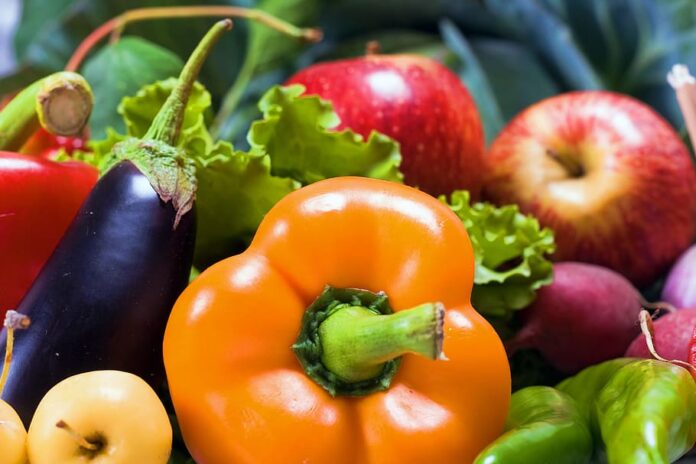Since becoming a vegetarian, I’ve been seeing a lot of myths and misconceptions circling around about vegetarianism. Things like: “You can’t eat the same foods as everyone else,” “It’s too difficult to find food that doesn’t have meat in it,” and “You won’t be able to stay fit without meat.” All of these statements are wrong. Even so, many people still find it difficult to go vegetarian. That’s why I’ve written this guide, to help you become a vegetarian.
Being a vegetarian is a noble act, and one that many people, such as myself, are proud of. However, for people who want to get into the lifestyle but do not want to give up the meat, it can be a challenge. For those individuals, I have prepared this helpful guide for you.
The ultimate goal of eating a vegetarian diet is to reduce meat consumption, and to do this, you need to make some changes. The ideal vegetarian diet is one that is full of plant-based foods. Though many vegetarians will say this is for health reasons, it is also an ethical choice.
Although vegetarianism may make you healthier and leaner, the word conjures up images of anemic zealots, exorbitant Whole Foods expenditures, and a sad goodbye to bacon for most people. Here’s how to get the advantages of a vegan diet without going insane (and yes, without giving up meat).
When most people hear the word vegetarian, they immediately think of something they can’t live without: bacon! Citizen! Thanksgiving. Shoes made of leather!
Also, being the guy in the restaurant is something they don’t want to do. Consumption of soy products from other countries. A sensation of hunger. Dehydration, fermentation, and germination It’s a shame to compare a buckwheat pancake with black beans to a cheeseburger.
I don’t eat meat since I’m a vegetarian. For almost a decade, I’ve been studying and teaching vegetarian nutrition (and am the leading expert in the field within PN).
And I agree that the most of them seem to be utter rubbish.
With a lifelong commitment, a highly visible badge, and a sermon at a cocktail party, our culture can transform a basic diet philosophy into a way of life.
But don’t reject a brilliant concept because some individuals are too enthusiastic about phrases on Instagram or T-shirts.
Because plants are beneficial. Obviously, you should consume more plant-based foods:
- helps you feel better;
- helps to keep the hunger in check;
- offers you with a wide range of nutrients, including food and fiber;
- It is possible to be more ecologically responsible while also improving animal welfare.
The majority of individuals are aware of this. They do not, however, make the necessary changes.
Animal products provide 27 percent of an average North American adult’s energy, or approximately 900 calories per day. Vegetables, fruits, and legumes account up just 9% of the total….
Is it possible that the misconceptions surrounding vegetarianism, as well as its baggage, are preventing more individuals from adopting a more plant-based diet?
Let’s bust some misconceptions and explore how a plant-based diet – or even vegetarianism – may fit in with your goals and beliefs.
Myth 1:
A plant-based diet necessitates the elimination of ALL animal products!

Okay, that’s good: a strict vegan consumes no animal products.
A plant-based diet, on the other hand, does not have to be all or nothing. This is not an option.
We are affected by variables such as these while making dietary choices.
- what’s going on right now;
- what we have access to right now;
- what we are able to afford
- what we want to accomplish with our bodies and how we want to feel about them;
- our culture, religion, and morals, as well as our cuisine;
- our dietary choices and preferences;
- our societal expectations and connections;
- our medical issues;
- our everyday worries – and the life’s inevitable disruptions to these worries
The pursuit of the perfect diet – or an excessively rigid nutritional approach – leads us wrong.
When we establish food rules, we always violate them.
Today’s meal was organic, but it wasn’t local. MISCELLANEOUS!
This meal is extremely nutritious since it is organic, local, raw, and vegan….. Regrettably, I will be unable to assist my children in college due to financial constraints. MISCELLANEOUS!
I’ve had beef for the last two days…. I’m not sure I qualify as a flexitarian. MISCELLANEOUS!
When I was in Uganda, I went to a woman’s house and she gave me a hard-boiled egg as a token of her hospitality. Sacrificing anything valuable, such as an egg, was a huge event in their community.
I’m not a big fan of eggs. However, I was a stranger in this circumstance, attempting to establish social contact with this lady. I had a disagreement with myself. I eventually handed up the egg.
MISCELLANEOUS!
My lesson has been learnt. It is unrealistic to expect nutrition to be either/or. That includes meals made from plants.
Do you wish to consume mostly plant-based foods? You don’t have to abstain from meat for the rest of your life. It is not necessary for you to establish new acquaintances. You are not need to inform your grandma that you will not be attending the Christmas meal.
As much as possible, you consume mainly vegetables. Concentrate on the most important thing.
Maintain a calm demeanor.
Myth 2:
It’s difficult and costly to eat vegetarian
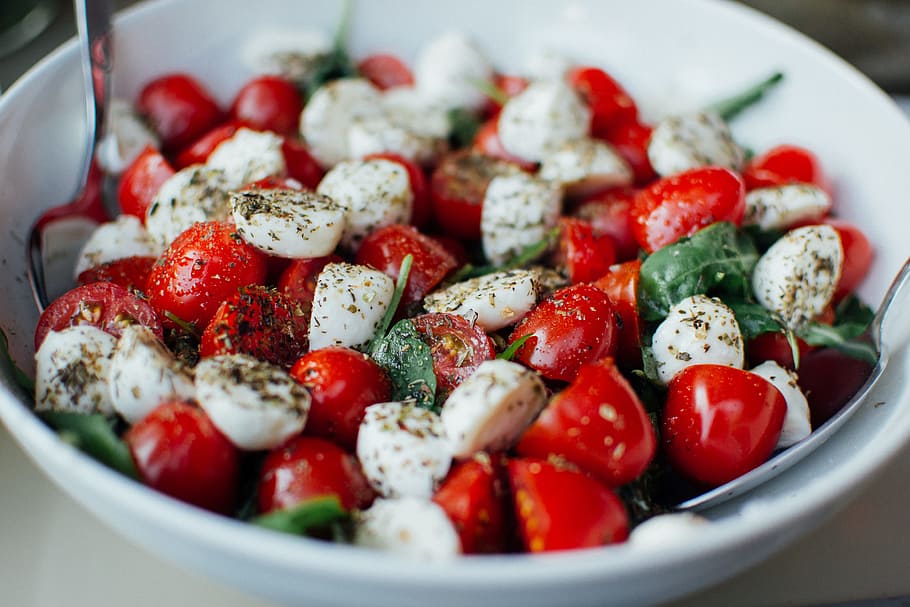
There are vegetarians who like unusual vegetarian meals.
Some of them write famous blogs, create Facebook recipes, and flood your social media page with gorgeous, colorful pictures of the food they make.
Oh well, you reason. Perhaps I’ll give vegetarianism a try.
Take a look at the ingredient list after that. What is nutritional yeast, and how does it work? In a pizza crust, what role does seaweed play?
But here’s the deal:
You may customize any kind of cuisine to your liking. (For further information, see molecular gastronomy.)
However, you will never be required to do so. Food and nutrition may (and, for the most part, should) always be simple.
It takes time, effort, and experimentation to transition to a plant-based diet. Learning new skills is often beneficial. To be a leader, though, you do not need to study.
The price is determined by a number of variables.
- You will spend more money if you purchase everything organic.
- You will spend more money if you choose Fair Trade certified goods.
- You will spend more money if you stock your kitchen with snacks, hummus, salads, coconut ice cream, and other ready-made meals.
Almond butter and organic fair trade chocolate are two of my favorite things. But if I ate that much of it all the time, I’d run out of money and have to return to live with my parents. (Plus, after all those chocolate and almond shakes, I’d definitely have to borrow money from them to purchase larger clothes.)
As a result, I’m making a concession.
- I spend more money on specialized meals and consume less of them.
- I spend less money on staple foods and consume more of them.
Consider the following scenario:
I went shopping last week. A three-pound bag of apples will set you back $5, a box of lentils will set you back $1.50, a two-pound bag of oats will set you back $3.50, and a big bunch of spinach will set you back $2. For one of them, you’ll need a can opener, but I believe most folks can handle it.
Can you put the cardamom and sesame energy balls and vegan omelets made with chickpea flour aside for a moment? Do you want to take a vacation from Pinterest?
It will all become apparent if you build your plant-based diet around basic, less processed vegetables, fruits, legumes, whole grains, nuts, and seeds.
Myth 3:
A plant-based diet necessitates the consumption of a variety of strange soy items from the frozen food area
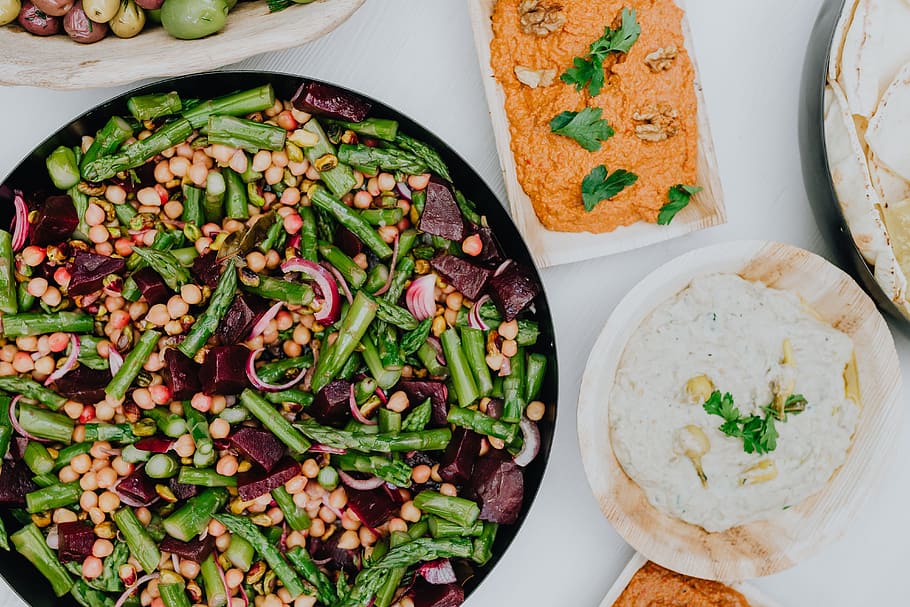
Vegetarianism has evolved from a hippy side effect to a significant business in North America in recent decades. The industry for processed and pre-packaged vegetarian meals has grown as a result of this.
However, a vegetarian diet does not always imply a high-carbohydrate, processed-food-heavy diet, any more than meat-eating implies hot dogs and sloppy joes.
Of However, certain processed foods, such as almond milk in a smoothie or pureed legumes, are OK.
Remember that a high-quality plant-based diet should include fruits, vegetables, whole grains, nuts, seeds, beans, and legumes, all of which are fresh, minimally processed, nutritious, and useful foods. Plants, to be precise.
Food that makes you happy… and that is also healthy for you.
Myth 4:
I’ll be protein deficient if I eat a vegetarian diet…. or I’ll be hungry all the time
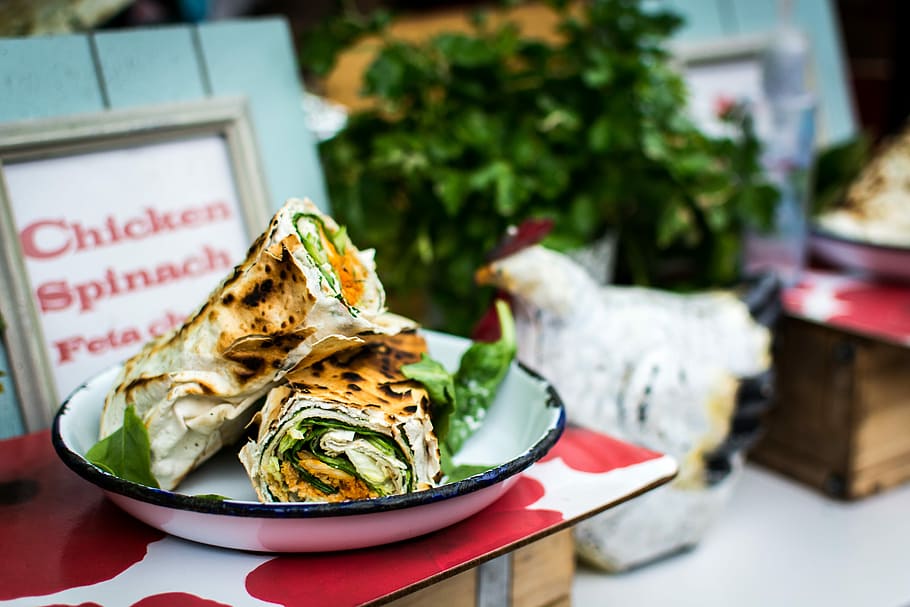
What happened to the proteins? When it comes to plant-based diets, this is typically what people are most scared of.
This is reasonable. When we think of protein in North America, we typically think of meat, poultry, fish, or eggs.
This isn’t always a negative thing. Keep in mind that plant-based nutrition is a never-ending process. It is not essential to entirely eliminate animal products from your diet. On the continuum, you can get a bit closer to the plants.
This implies that unless you have a particular need for additional protein, it’s OK if you eat eggs, dairy, fish, meat, or protein powder on a regular basis, even if 90 percent of your diet is plant-based.
But what about individuals who wish to stay away from these goods for the most of the time, if not all of the time? Is it really feasible to eat a completely plant-based diet without getting protein deficiency?
Yes, you can, but you’ll have to put in more effort. When you remove a big category of foods from your diet, you generally have to make an additional effort to compensate for the difference.
Obtaining enough protein:
- To keep a healthy waistline, you must consume adequate calories. Proteins, for example, can accomplish what they need to do when our energy requirements are fulfilled. B. keep muscle mass and other bodily components in good shape. If you don’t consume enough protein, it will be used for energy, and you will become deficient.
- Every day, include 1 to 1.5 cups of beans in your diet. Beans are a good source of lysine for vegetarians and vegans who don’t consume meat.
- They consume a broad range of meals. You are deficient in protein if you consume carrots or chiri-chiri….. You develop scurvy if you only eat chicken.
So the choice is yours:
- Right now, what is your main priority? Time? Convenience? Simplicity? Etc.
- What are your primary dietary requirements? Sports outcomes that are better? Do you have an injury that you’re trying to heal from? Do you want to lose weight? Is your relationship with food becoming better? Etc.
- What are you ready to go through in order to guarantee that your dietary requirements are met?
It’s possible that your responses to these questions will vary over time. It’s a good thing, too.
Myth 5:
Beans are unhealthy

Beans, which are a mainstay of many healthy diets throughout the globe, particularly those found in the Blue Zones, have lately been the target of severe food phobias.
Some people worry that the bean’s high concentration of antinutritional elements will make the plant’s nutritional worth irrelevant. (One of the major reasons paleo dieters avoid legumes is because of this.)
Many publications also warn about the connection between soy and issues including infertility, cancer, and nutritional deficits.
Here’s what you actually need to know about the dangers of legumes for your health: Don’t be concerned about them.
Grain legumes and legumes offer many benefit
- They’re inexpensive.
- Proteins, minerals, and antioxidants are all found in them.
- Diabetes, heart disease, and cancer may all be reduced by using them.
- They’re delicious (if you prepare them properly).
I’m able to place the microphone down here. But there’s one more thing: beans are filling. (Seriously, if you eat these every day, your desires for terrible burgers will be substantially reduced.)
Returning to the topic of anti-nutrients: Yes, they may inhibit the absorption of other nutrients in the diet when taken separately. This may be an issue for individuals who consume a lot of basic foods like rice, maize, wheat, beans, and so on. B. People in impoverished countries that have extremely restricted diets.
When beans are part of a diverse diet, however, the antinutrients they contain (some of which are referred to as phytonutrients, by the way) play a key role in why they are so beneficial.
So, how about soy?
Now that North America has mastered intemperance, we’ve discovered a plethora of methods to satiate it. We repurpose them and use them in a variety of ways. It’s all too easy to get carried away and do too much.
When it comes to soy, how much is too much?
I would be worried about excessive soy intake if a person eats more than 6 oz of tofu, 4 oz of soymilk, and 12 cup of edamame per day, or if the bulk of their calories come from healthful processed soy foods, such as soy burgers. (In fact, any regime centered so strongly on a single commodity would cause me to have similar concerns.)
Soy is probably not good for men’s or women’s health in quantities below this, therefore it’s better to incorporate it in modest amounts in the diet on a regular basis.
I suggest no more than two palms (palm-sized portions) of soybeans per day in general.
Myth 6:
I’m becoming big because of all those carbs
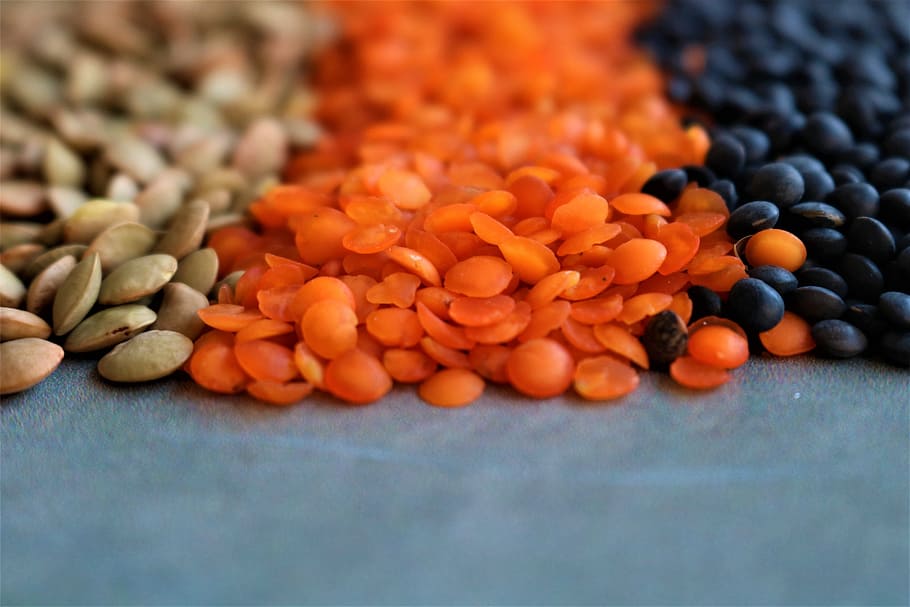
Let’s get down to business with the science.
Find everyone you know who has a 50-centimeter waistline from eating too much barley, lentils, blackberries, and turnip greens.
I’ll explain to the sound of crickets and seaweed flying across the deserted streets:
Carbohydrates aren’t all created equal.
Vitamins, minerals, and fibre abound in whole plant carbs. Furthermore, the carbs in these meals are frequently poorly absorbed, if at all! (However, our gut bacteria love it, which helps to maintain the plumbing in excellent condition.)
Carbohydrates are a diverse collection of chemicals that include fructose, which gives fruit its sweetness, beta-glucan, which makes oatmeal sticky, and cellulose, which gives celery (or a garden tree) its crunch.
These many kinds of carbohydrates do not all function in the same manner or have the same impact on your body.
Carbohydrates from minimally processed plant foods are not consumed in large quantities in North America. Our carbohydrate excess is caused by highly processed meals (cookies, chips, drinks, sweets, white bread, and so on).
To be exact, highly processed food makes up more than 60% of the food in American shopping trolleys.
However, take it seriously. Approximately 60%.
So, while diet advocates argue fruit carbohydrates, antinutrients, and tofu, the majority of Americans consume low-nutrient meals.
For the overwhelming bulk of the population, more plant-based carbs – some fruit, some beans, maybe some fried starchy tubers – would go a long way.
As someone who has helped literally thousands of individuals lose weight and become healthy, I can tell you that I have yet to encounter a client who gained weight by eating minimally processed, natural foods.
(In many studies using solely potato-based diets, participants seemed to lose or maintain their weight.) Because potatoes are so full, many experiment participants discovered that they couldn’t eat enough to satisfy their energy requirements. We don’t advocate it, but it debunks the myth that a high-carbohydrate plant-based diet would always wreck your metabolism).
What should I do now?
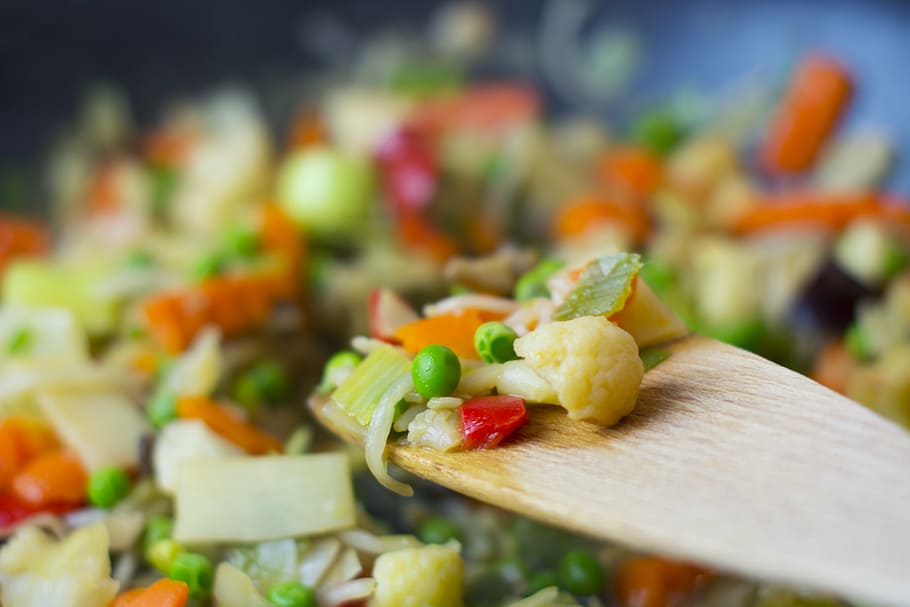
Where should you begin if you want to eat more nutritious, sustainable, and delicious plant-based meals without giving up meat?
1. A few minor tweaks to add additional plants
While there is no such thing as the “optimal” diet, a diet focused on minimally processed plant foods is clearly beneficial.
Here are some suggestions on how to go about it:
- Instead of 1 pound of beef, use 1/2 pound and add chopped mushrooms to the mix. This burger’s recipe may be found here.
- Chickpeas and sunflower seeds may be substituted for chicken in salads.
- Make at least 75% of your meals plant-based.
- Try eating 4 ounces of meat and 1.5 cups of veggies, plus a handful of nuts, instead of 8 ounces of meat and 1 cup of vegetables.
- Try switching between a plant-based and a meat-based diet for a week.
- Order a vegetarian choice at a restaurant; you may like the flavor (you may not be a vegetarian, but it does not imply a vegetarian option isn’t healthy).
Accepting beans is number two
I ate beans approximately five times a year before switching to a plant-based diet: four times at Taco Bell and once in the summer, when I ate baked beans with a burger at a family gathering.
This year, each American will consume about 2.5 kilograms of beans, compared to 2.5 kilograms of meat and fish.
Aim for 1 to 1.5 cups of beans each day to be successful on a plant-based diet. Take it for a few weeks to let your digestive system to adapt (slow and steady = less bloating).
The cheapest beans are dried beans, but canned beans are the most convenient if you’re just getting started.
Beans may be prepared in a variety of ways, including the following:
3. Don’t make an effort to eat properly. Simply said, do your best
Instead of going all-or-nothing, take it slowly. Have a good time.
Experiment with new items. Check out what you’re seeking.
Also, don’t stress over whether or not each meal must be entirely plant-based. You may retain one or two game food cards in the collection. Perhaps it’s the eggs. Perhaps it’s the bacon. Maybe it’s a Taquito from 7-Eleven. They are the ones who make the rules.
Do you need some inspiration?
Here are a few of my favorite – or rather, simple – breakfast, lunch, supper, and dessert recipes that may pique your interest.
4. Don’t eat only to eat
If you’re like the majority of individuals, you went to the gym to get in shape or feel better. This is an excellent place to begin.
However, if you want to maintain good eating habits for the rest of your life, you’ll need a more long-term objective.
These are what we refer to as “gravity objectives” in coaching. (You may also refer to it as your ikigai.)
Consider this: What is most essential to you?
Do you wish to be a role model for your children, for example? Do you believe in supporting local farmers? Is it possible to improve animal welfare? Do you consume food that has a lower environmental impact? Do you have a lower concern about your health?
Here’s a simple activity to get you started. Fill in the blanks with the following information:
- I’m the kind of person who
- And
- So if I ___________, I’ll be happy.
5. Get rid of the all-or-nothing mentality
I recall helping at a big community event at a vegetarian information station.
On the witness stand, a lady remarked, “It’s wonderful to have you here at this occasion.” I only eat meat once a month and get eggs from a neighbor!
I burst out laughing and slapped him on the back.
Another volunteer, meanwhile, began scolding her for not doing enough.
Palm.
People like that should not be listened to.
Figure out what works for you in your actual, messed-up life, and praise yourself for the wonderful things you’ve already accomplished.
Your priorities and values are yours to choose from, and it’s up to you to determine which ones are most important today.
Make the best decision you can given the circumstances by being rational, reasonable, and reasonable. There’s more to life than deciding what to eat.
Consider how you can include some plants into your life today, regardless of where you are on the plant continuum.
Even if you start with some beans in a Taco Bell tortilla, like I did, you have to start somewhere!
Better eating, moving, and living are all things that can be improved
The realm of health and fitness may be perplexing at times. However, this isn’t always the case.
You’ll discover the ideal diet, exercise, and lifestyle recommendations for you, tailored to your specific needs.
Receipt acknowledgement
I’d want to express my gratitude to Nate Green, Camilla DePutter, and Alex Picot-Annan for their advice and assistance in creating this essay.
Vegans and vegetarians alike are always confronted with the question: “Why do you eat animals?” Even the most well-meaning non-vegetarians can get frustrated and disheartened by the amount of misinformation out there about being a vegetarian. So first of all, let me just say: I’m not one of those people who wants to eat animals. I wish I could eat them, but I just can’t. 1 in 10 people in the world is vegetarian, and there’s a good reason for that. However, this doesn’t mean that all vegetarians are against eating animals; I’m just a non-vegetarian who has become a vegetarian out of consideration for animals.. Read more about mostly plant-based meal plan and let us know what you think.
Frequently Asked Questions
Do vegetarians throw up if they eat meat?
I am not a vegetarian, so I cannot answer this question.
Can you be a vegetarian and still eat meat?
Yes, you can be a vegetarian and still eat meat.
Can a vegetarian eat food cooked with meat but not the meat?
Yes, vegetarians can eat food cooked with meat but not the meat.
